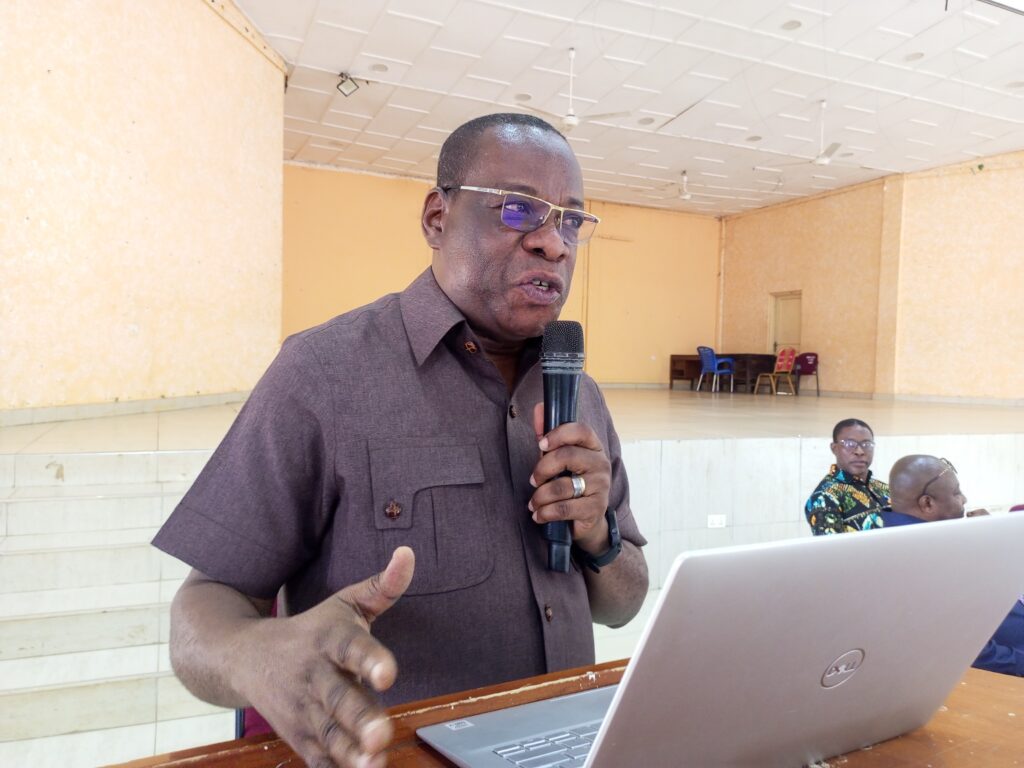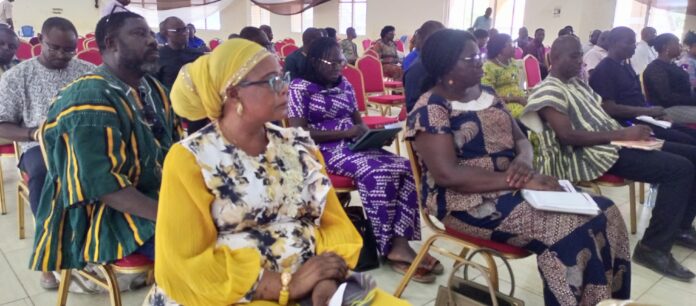The West African Examination Council (WAEC) recently convened key education stakeholders in Ghana’s Upper East Region in a significant move to address the growing concern of examination malpractices .
The strategic engagement sought to foster collaborative efforts and develop practical solutions to combat what has become a pervasive problem affecting the integrity of national examinations.
The comprehensive stakeholder meeting brought together Regional and Municipal/District Directors of Ghana Education Service (GES), representatives from Teacher Unions, Heads of both Public and Private Schools, security agencies, Religious and Traditional leaders as well as the Media. This diverse assembly reflects WAEC’s commitment to a multi-faceted approach in tackling examination malpractices.
According to WAEC, several disturbing trends have emerged in recent years that undermine the examination process. The Council has observed a significant surge in technology-facilitated cheating methods including the proliferation of Telegram and WhatsApp platforms trading examination questions and answers, widespread use of smartphones and tablets to access answers during examinations, and increasing reliance on AI platforms to generate responses during tests.
The council also expressed concern about organized efforts to dictate answers to candidates within examination halls, sophisticated methods involving projectors to display answers on boards for mass copying, and digital dissemination of leaked examination questions via social media platforms.
These developments have necessitated stringent measures, including the cancellation of examination papers and withholding of results for implicated candidates, actions that WAEC acknowledges are disruptive but necessary to maintain standards.

Addressing participants at the engagement, John K. Kapi, Head of Public Affairs at WAEC, emphasized the Council’s commitment to maintaining examination integrity through existing legal frameworks.
“The WAEC Law 2006 (Act 719) was passed to establish a legal framework for the council to operate in its member countries, and the law is aimed at reducing examination malpractices and cheating by introducing penalties and measures to safeguard the integrity of the examination process,” Mr. Kapi said.
As the body mandated to conduct both the Basic Education Certificate Examination (BECE) and West African Senior School Certificate Examination (WASSCE) in Ghana, WAEC views the collaboration with stakeholders as crucial to reversing the troubling trend.
Mr. Kapi concluded his address with a passionate appeal to all participants, highlighting the far-reaching implications of examination integrity on national development.
“The future of our country depends on us. There is an urgent call to action. If we work together, we can build a fair and credible system and we would be able to produce young men and women who can effectively contribute their quota to the development of our nation,” he emphasized.
The engagement also served as a platform for collating recommendations from participants, which will inform WAEC’s ongoing strategies to combat examination malpractices. The Council aims to implement these insights as part of its comprehensive approach to eventually eradicate the problem.
Participants expressed strong support for WAEC’s initiative, acknowledging that examination integrity is a shared responsibility requiring concerted efforts from all education stakeholders, as they demonstrated their commitment toward restoring confidence in Ghana’s educational assessment systems and ensuring that qualifications truly reflect students’ knowledge and abilities.




